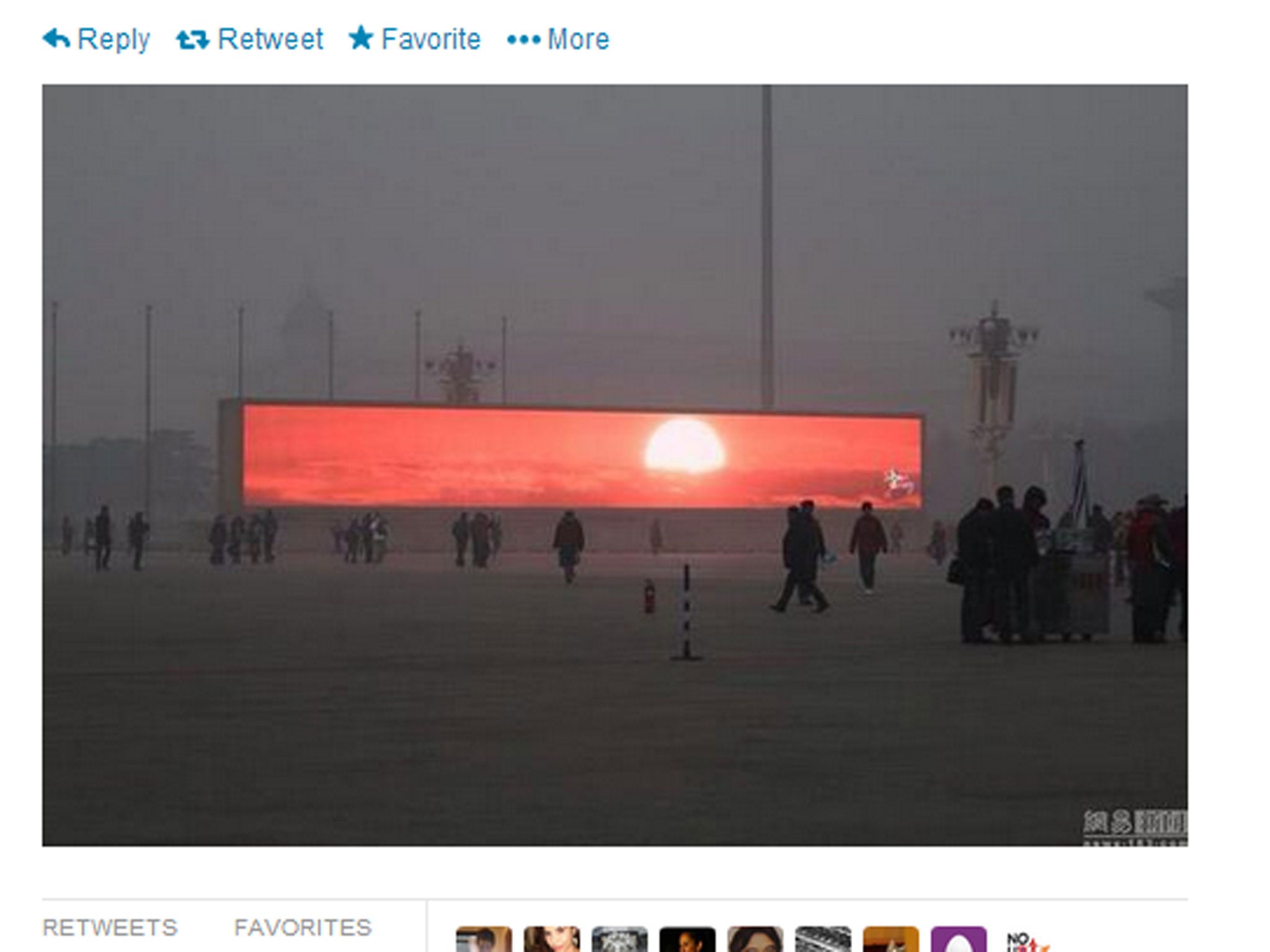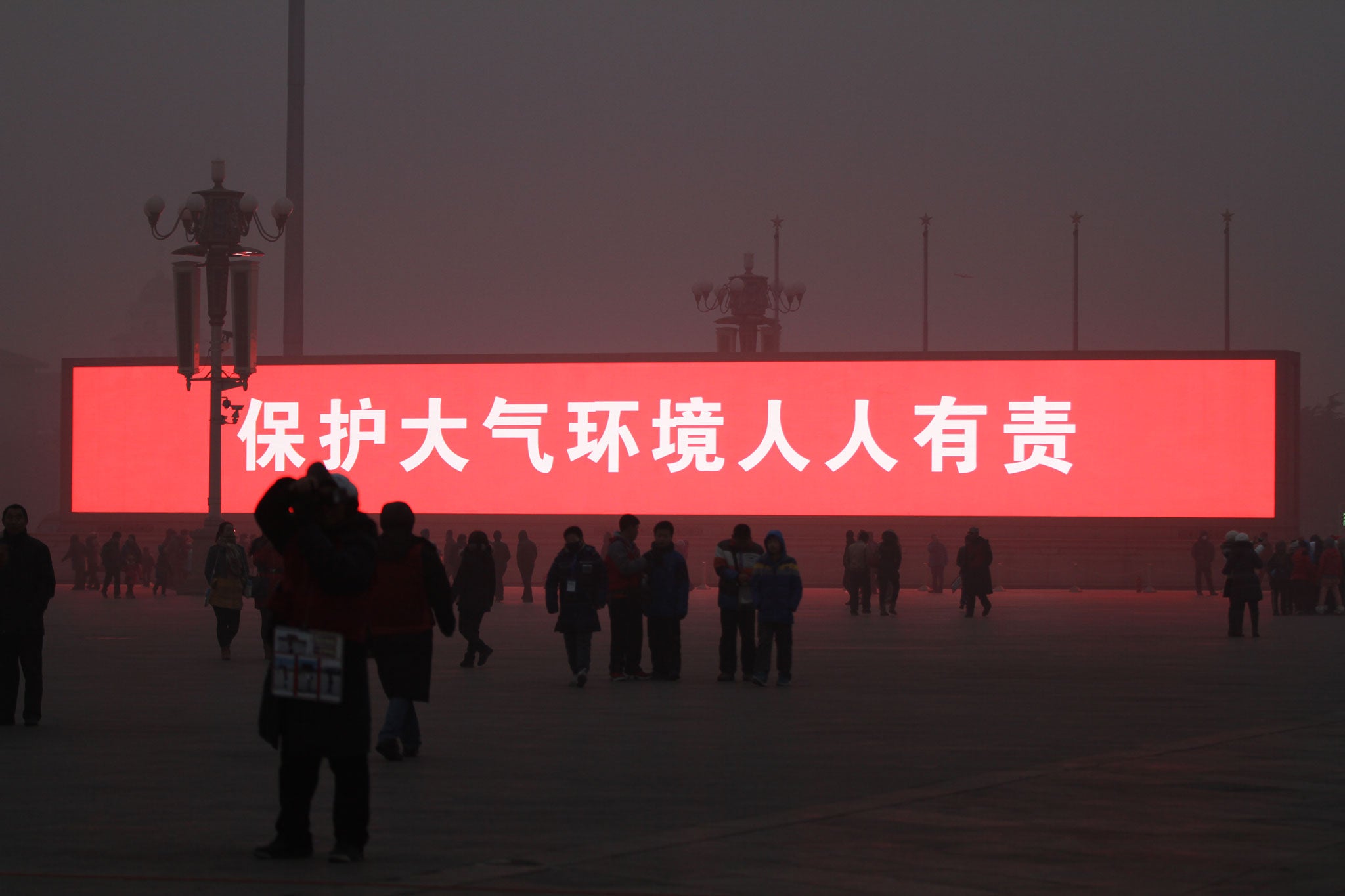Virtual Chinese sunrise broadcast on giant television screens because of smog was fake

Your support helps us to tell the story
From reproductive rights to climate change to Big Tech, The Independent is on the ground when the story is developing. Whether it's investigating the financials of Elon Musk's pro-Trump PAC or producing our latest documentary, 'The A Word', which shines a light on the American women fighting for reproductive rights, we know how important it is to parse out the facts from the messaging.
At such a critical moment in US history, we need reporters on the ground. Your donation allows us to keep sending journalists to speak to both sides of the story.
The Independent is trusted by Americans across the entire political spectrum. And unlike many other quality news outlets, we choose not to lock Americans out of our reporting and analysis with paywalls. We believe quality journalism should be available to everyone, paid for by those who can afford it.
Your support makes all the difference.The news that people in Beijing had started watching images of sunrise on a giant television screen in the middle of Tiananmen Square because of the city’s worsening smog was reported around the world last week. The truth, however, turned out to be a little hazier than that.
The "virtual sunrise" was not, as some reported, because the city's pollution has grown so bad people are unable to enjoy it naturally.
In fact, as the technology news website Tech in Asia revealed, the image is part of a long video reel advertising tourism in China’s Shandong province.
The advert actually plays regularly throughout the year, regardless of the state of pollution in the city, and did not attract any more attention from residents than normal.
However, the pace with which the story spread on social media sites highlights the capital city's growing environmental and health concerns.

In a recent study, scientist Yuming Guo and a team of researchers analysed the link between increased pollution levels across Beijing and deaths recorded over the same period.
They found that while the impact on the health of an individual varies hugely depending on factors like age, sex and occupation, an average Beijing resident had life expectancy reduced by 15 years as a direct result of the smog.
On Thursday, a monitoring post outside the US embassy recorded levels of harmful PM2.5 particulate at more than 20 times the limit recommended by the World Health Organisation.
Subscribe to Independent Premium to bookmark this article
Want to bookmark your favourite articles and stories to read or reference later? Start your Independent Premium subscription today.
Join our commenting forum
Join thought-provoking conversations, follow other Independent readers and see their replies
Comments